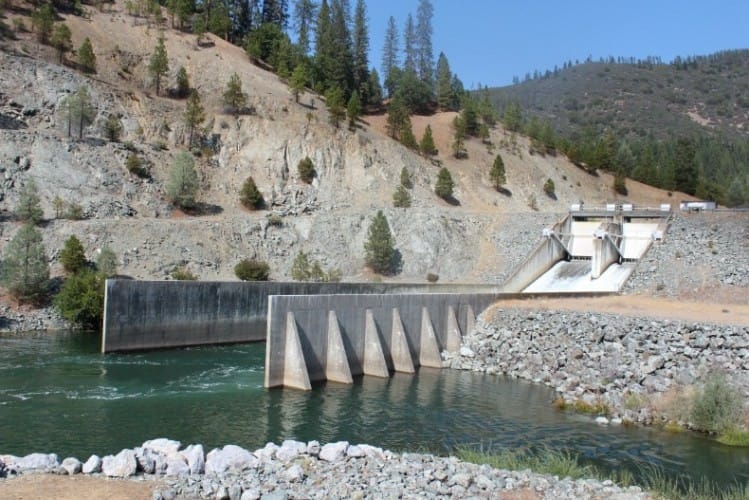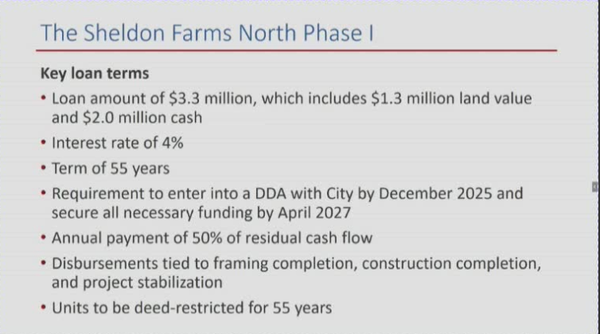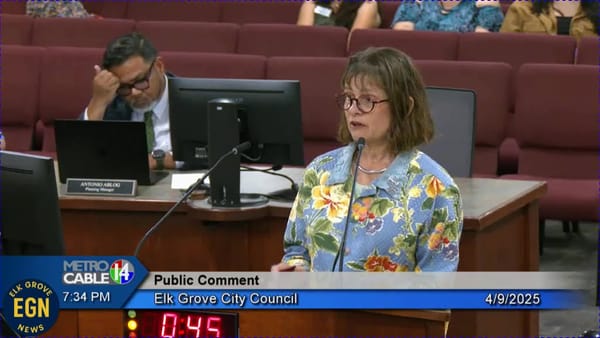Westlands Water District Asks CA Supreme Court to Overturn Environmental Restoration Obligations

Westlands Water District, the largest agricultural water district in the country, is asking the California Supreme Court to overrule four State Court decisions in its most recent effort to evade payment of at least $100 million in environmental restoration and other costs.
These decisions refused to “rubber stamp a federal contract to eliminate Westlands’ massive debt to the United States Treasury,” according to the Hoopa Valley Tribe in a press statement.
Westlands, located on drainage-impaired land on the west side of the San Joaquin Valley, has been dubbed the “Darth Vader of California Water Politics” by its opponents for its legal, legislative and administration attacks on fish restoration efforts on the Trinity River, a major tributary of the Klamath River, and the Sacramento and San Joaquin River systems for decades.
“The courts ruled that the contract between Westlands and the federal Bureau of Reclamation (Reclamation) is incomplete because it omitted a critical term—how much is owed,” the Tribe stated.
The case is: Westlands Water District v. All Persons Interested in the Matter of the Contract Between the United States and Westlands Water District Providing for Project Water Service, San Luis Unit and Delta Division and Facilities Repayment, Court of Appeal, Fifth Appellate District Case No. F083632 and consolidated with Case No. F084202 (September 1, 2023)
“The omission was deliberate,” the Tribe argued. “Federal law requires Reclamation to collect from Westlands all the costs involved in constructing federal water delivery facilities and all the costs to mitigate the environmental damage caused by delivery and use of federal water supplies from the Central Valley Project. However, in preparing the contract, Trump Administration Interior Department officials had added up only some of the costs and hatched a scheme to write off the financial requirement and shift the cost to the U.S. taxpayers.” .
In its contract, Reclamation states, falsely, that Westlands had “fulfilled all of its obligations” and had made “full repayment,” the Tribe said. Before federal accountants could verify the costs, Reclamation signed Westlands’ contract in February 2020, and later withdrew key financial documents from further scrutiny.
In order to be binding on the United States, Westlands needed to “promptly” obtain a California court decree that the contract was valid. San Joaquin and Trinity Counties and numerous non governmental organizations opposed validation. After nearly four years of litigation, a California Appeals Court in August concluded that the contract is “materially deficient in its failure to specify Westlands’ financial obligations,” the Tribe noted.
Westlands Water District wouldn’t exist without Trinity River water
“Let us be clear,” said Hoopa Valley Tribal Chairman Joe Davis, “Westlands Water District would not exist without the Trinity River’s water. They have no surface water.”
Reclamation ships Trinity River water from Lewiston Reservoir in the Trinity River basin to the San Joaquin Valley four hundred miles away. At 600,000 acres, Westlands is the size of Rhode Island. “Its industrial farms reap billions of dollars from federal taxpayer subsidies,” according to the Tribe.
“In the process, Westlands water diversions have destroyed Hoopa’s fishery and devastated our people,” said Hoopa Fisheries Director Michael Orcutt.
“In 1992, Congress passed the Central Valley Project Improvement Act (CVPIA), which essentially told Reclamation and Westlands that ‘Enough is enough.’ The environmental destruction had to stop, and fishery restoration needed to begin immediately,” the Tribe continued. “Congress required the Central Valley Project to restore decimated fisheries including the Trinity River. Knowing that would require funding, Congress made water and power contractors pay for the environmental damage that their profit taking had caused.”
“The Trump Administration made a play to nullify environmental restoration payment obligations under the Westlands’ centract by eliminating their financial debt. Without funding, fishery restoration will fail,” said Vice Chairman Everrett Colegrove.
The Tribe said Secretary of the Interior Haaland has the “opportunity to void Westlands contract and insist on new contract terms that comply with federal law, fulfill Biden Administration policies for environmental justice, protect the Hoopa Valley Tribe’s vested property rights in the Trinity River fishery, and ensure payments for restoration.”
“So, this story is not just about what the Trump Administration did,” said Hoopa Council Member Daniel Jordan. “It is about what the Biden Administration will do or fail to do.”
“Will Secretary Haaland, the trustee for Hoopa’s rights, sovereignty and resource protection, condone Reclamation’s culture of complicity, which persists to this day?” asked Hoopa Council Member Jill Sherman-Warne. “Will she act for California’s environment and Hoopa’s rights, or will she be complicit in her silence?”
Westlands receives 100 percent water allocation this year as salmon closure continues
As Westlands fights a legal campaign to evade payment of at least $100 million in environmental restoration and other costs, all recreational and commercial fishing on the ocean in all of California and most of Oregon is closed, due to the collapse of Sacramento River and Klamath/Trinity River fall-run Chinook salmon populations spurred by poor water and fishery management by the state and federal governments, according to salmon advocates.
Recreational salmon fishing on the Sacramento and Klamath rivers is closed and tribal fishing for salmon on the Hoopa Valley Reservation on the Trinity River and the Yurok Reservation on the Klamath River is severely restricted this year. The total tribal allocation for Klamath River fall-run Chinook salmon on the Klamath River system is 1872 adult fish this year, according to NOAA Fisheries: www.fisheries.noaa.gov/..
The Yurok Tribe is allocated 80 percent of the salmon, while the Hoopa Valley Tribe is allocated 20 percent of the fish, according to Orcutt. That doesn’t make for many fish when you consider that there are 6,357 enrolled members of the Yurok Tribe, the largest Tribe in California, and 3,167 enrolled members of the Hoopa Valley Tribe.
At the same time that tribal, recreational and commercial fishing communities suffer tremendously from the salmon closure, it is noteworthy that Reclamation this spring increased the Central Valley Project water allocation to 100 percent for contractors like Westlands Water District (Westlands) for the first time since 2017.
“We are exceedingly grateful to Reclamation, and its dedicated and hard-working staff, for the increased water allocation,” said Jose Gutierrez, Westlands’ interim general manager, in a statement in response to the announcement by Reclamation on April 20. “Following two years of 0% allocations, this announcement will provide much needed water to support the District’s communities, family-owned farms, and hard-working families in the San Joaquin Valley. This water supply will assist growers in Westlands with putting the land to work to grow the food that feeds the world.”
Background: CA Appeals Court refused to validate ‘repayment’ contract and Westlands
On Monday, August 7, the California Court of Appeal issued a landmark ruling affirming a Fresno County Superior Court Judgment refusing to validate a proposed “repayment” contract between Westlands Water District and the United States Bureau of Reclamation.
This contract was for the purchase and delivery of up to 1.15 million acre-feet per year, in perpetuity and for a highly discounted price, from the Central Valley Project (“CVP”), according to a press release from a coalition of groups.
The Court’s 44-page ruling holds that Westlands’ draft contract was “materially deficient in its failure to specify Westlands’ financial obligations under the anticipated contract.”
In rejecting Westlands’ requested validation, the Court agreed with arguments advanced by three groups of public interest opponents, including the North Coast Rivers Alliance, Winnemem Wintu Tribe, California Sportfishing Protection Alliance and Pacific Coast Federation of Fishermen’s Associations, Institute for Fisheries Resources, and the San Francisco Crab Boat Owners Association.
They contended that Westlands had “failed to comply with both procedural and substantive laws in approving an incomplete draft contract that sidestepped required public notice, informed agency review and careful environmental analysis.”
Winter-run Chinook salmon, spring-run Chinook salmon, Central Valley steelhead, green sturgeon, Delta smelt, longfin smelt and other iconic California fish species have been pushed to the edge of extinction by decades of massive water diversions from the Sacramento-San Joaquin River Delta by the Central Valley Project and the State Water Project.



